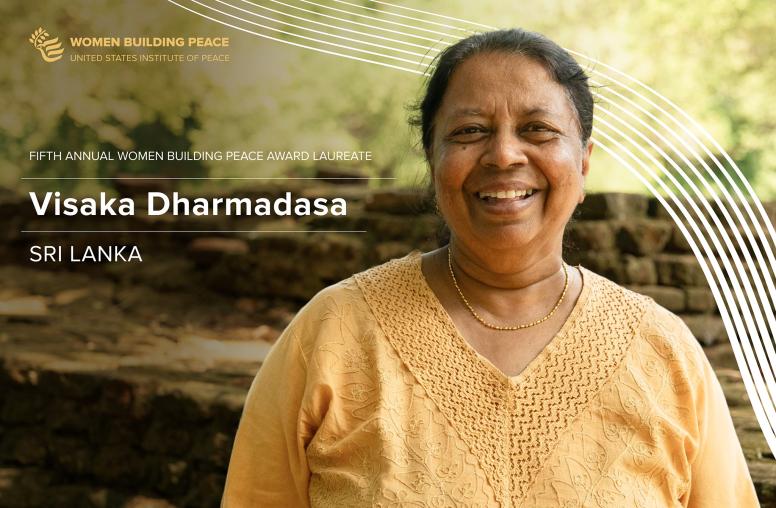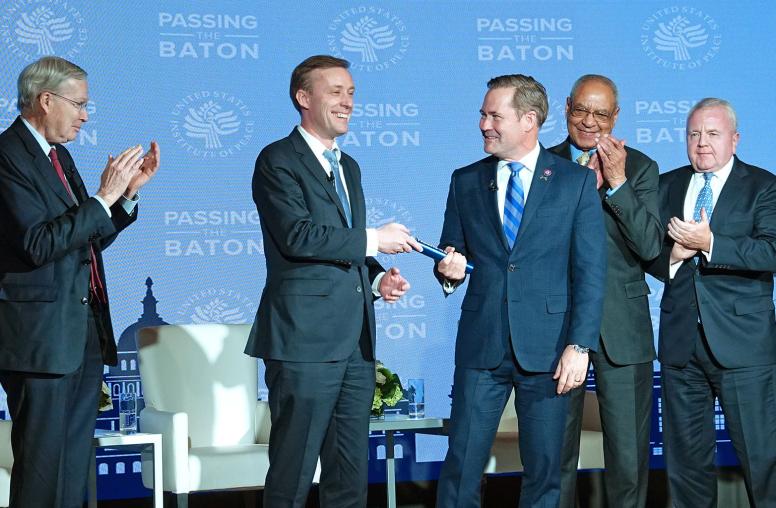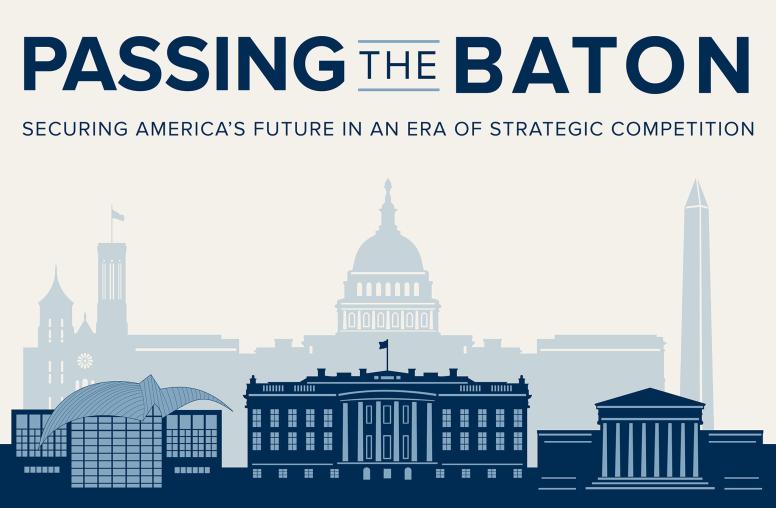Youth Play a Positive Role in Post-Conflict Reconstruction
In a new book from the United States Institute of Peace, “Youth and Post-Conflict Reconstruction: Agents of Change,” author Stephanie Schwartz contends that youth can and do play a dynamic and positive role in post-conflict reconstruction processes, countering popular belief and common depictions of youth as teenage terrorists, gang members and child soldiers.
For Immediate Release,
Contact: Lauren Sucher, 202/429-3822 or lsucher@usip.org
(Washington) - In a new book from the United States Institute of Peace, “Youth and Post-Conflict Reconstruction: Agents of Change”, author Stephanie Schwartz contends that youth can and do play a dynamic and positive role in post-conflict reconstruction processes, countering popular belief and common depictions of youth as teenage terrorists, gang members and child soldiers. Using three case studies—Mozambique, the Democratic Republic of the Congo and Kosovo—the volume explores how youth affect the post-conflict reconstruction process and how domestic policy, NGO programming, international interventions, and cultural and environmental contexts may change that role.
The common threads traced though the reconstruction periods in Mozambique, the DRC and Kosovo show that meeting certain critical needs from physical and mental health to reintegration, education and social, political and economic empowerment is essential to successful youth policy. Schwartz provides a new framework to analyze incentive structures for youth during post-conflict reconstruction and the relative success of intervening policies and programs in empowering youth to contribute to their communities. The volume explores linkages within and across cases, and develops questions that will direct future research in the field.
While most scholars and policymakers focus solely on young people’s potential for violence, this volume finds that youth are in fact, dynamic agents of change, capable of pushing their societies toward violence or toward peace. The dynamic role of youth suggests that successful long-term youth policies and programs can both reduce the youth demographic’s destabilizing potential, invest young people in the reconstruction process and empower the next generation to support sustainable peace. The author emphasizes that this programming is essential, not only for the wellbeing of the youth population, but also for the overall success of the peacebuilding mission.
“Without successful DDR (Disarmament, Demobilization, Reintegration), access to education or jobs, and opportunities to have their voices heard in the reconstruction process, young people can easily become a resource for elites seeking to spoil reconstruction, or they can independently contribute to destabilization through riots, gang militancy and terrorism,” states Schwartz.
“However, if reconstruction actors can provide young people with the needed opportunities, the cases show that youth are just as likely to contribute to the conflict resolution and community development,” she adds. “Therefore, although the youth demographic is just one cog in the greater reconstruction machine, how well the international community and domestic leaders address youth issues has a significant impact of the level of stability during the reconstruction process and on the long-term success of the peacebuilding mission.”
The hypotheses drawn from these case studies can help guide future research on youth’s role in post-conflict reconstruction, and provide insight for reconstruction actors to facilitate the youth population’s transition from war to peace.
Additional Resources
- "Why Youth Join al-Qaeda," USIP Special Report
Written by senior fellow Colonel Matt Venhaus, this May 2010 report examines the motivations of young men who cross international borders to seek out al-Qeda and its associated movements - "Iran's Youth: The Protests Are Not Over," USIP Peace Brief
This June 2010 paper examines the evolution of politically active youth in Iran in the past year and considers their future impact on the country's political, economic and social agenda. - "PeaceWatch" Spring 2010
This issue of PeaceWatch highlights how the Institute is engaging youth and helping to create the next generation of peacebuilders around the world.



